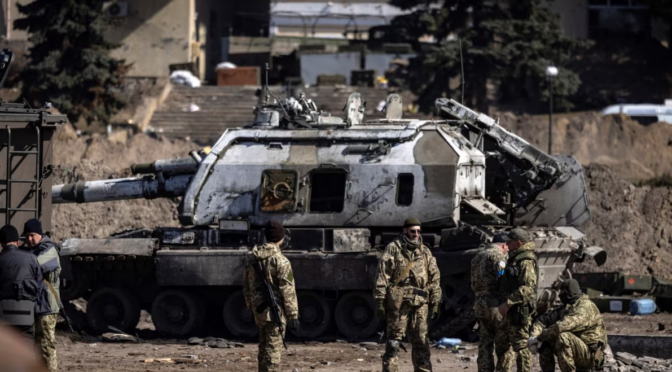The ongoing conflict in Ukraine has evolved from a regional dispute into a potential powder keg that threatens to engulf Europe in a broader conflict. This article examines the complex dynamics at play, exploring the contrasting interests of the United States and Europe, and the dire consequences that could unfold if the situation continues to escalate.
American Interests: Strategic Gains Amidst Chaos
From the American perspective, the conflict in Ukraine presents several strategic advantages:
- Reinforced NATO leadership: The crisis has allowed the United States to reassert its dominance within the NATO alliance.
- Arms industry boom: U.S. weapons manufacturers are benefiting from increased sales to both Ukraine and NATO allies concerned about Russian aggression.
- Weakening a geopolitical rival: A prolonged conflict drains Russia’s resources and military capabilities, potentially strengthening America’s global position.
Regardless of the outcome in Ukraine, the U.S. stands to gain economically and strategically from the fallout, reinforcing its global dominance.
Europe’s Predicament: Bearing the Brunt
In stark contrast to the U.S., Europe faces severe consequences from the ongoing conflict:
Energy Security Crisis
- Heavy reliance on Russian gas and oil has left Europe vulnerable.
- Sanctions and counter-sanctions have disrupted energy supplies.
- Shortages and price hikes are causing economic strain across European nations.
Food Security Concerns
- Ukraine, often called Europe’s breadbasket, has seen its agricultural exports severely disrupted.
- Food shortages and rising prices are exacerbating economic instability in many European countries.
The Specter of Escalation
The risk of the Ukraine conflict spiraling into a wider European war is a grave concern. Several factors contribute to this danger:
- Heightened geopolitical tensions between NATO and Russia
- Economic pressures leading to social unrest and political instability
- Continuous military build-up and arms influx into the region
Adding to these risks is the unpredictable nature of Russian President Vladimir Putin. His assertive stance on national sovereignty and potential willingness to take extreme measures if he perceives Russia to be threatened could lead to catastrophic consequences.
The Path to Peace: A Call for European Action
To avert a potentially catastrophic war in Europe, a shift in strategy is imperative. Key steps include:
- Prioritizing diplomacy and negotiations over military solutions
- Engaging in direct dialogue with both Ukrainian and Russian representatives
- Addressing energy and food security through diversification and sustainable alternatives
- Reducing military escalation by limiting arms proliferation in the region
The Rise of “European Sovereignty”
A growing movement calling for “European Sovereignty” is gaining momentum. The general public is increasingly pressing their leaders to make independent decisions based on Europe’s interests, rather than following U.S. directives. This shift in public sentiment could play a crucial role in shaping Europe’s approach to the conflict.
Conclusion: A Global Imperative for Peace
While the United States may perceive strategic and economic benefits from the conflict, Europe stands to suffer severe consequences. It is crucial for European nations to advocate for a peaceful resolution and take proactive measures to safeguard their energy and food security.
The path to peace will require diplomacy, strategic foresight, and a commitment to addressing the root causes of the conflict. Only by doing so can Europe ensure it does not become a battleground for broader geopolitical struggles.
Ultimately, the goal of peace should extend beyond Ukraine and Europe to encompass the entire world, including other regions facing conflicts. All peace-loving nations, countries, organizations, and individuals must unite in this pursuit of global stability and harmony.



Wrong analysis without hard data. Doesn´t see that Russia is not alone, its weapons are more and better than those of USA AND Europe.